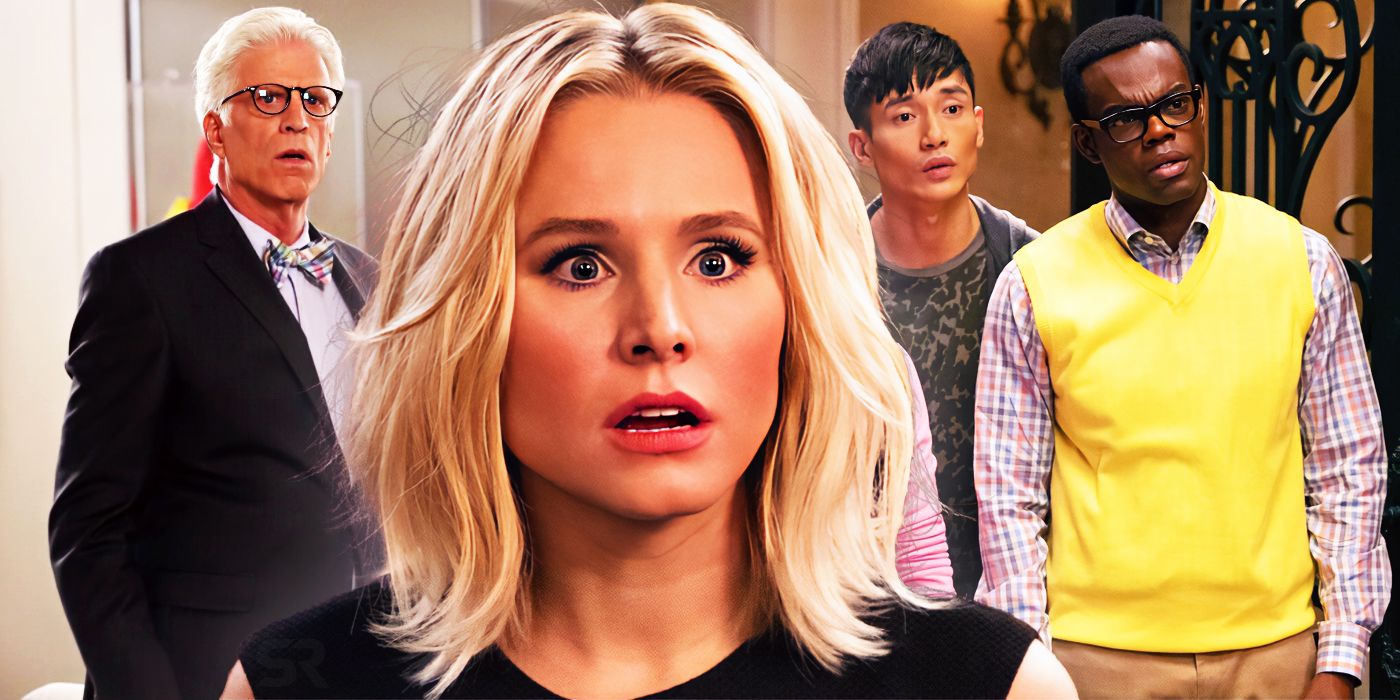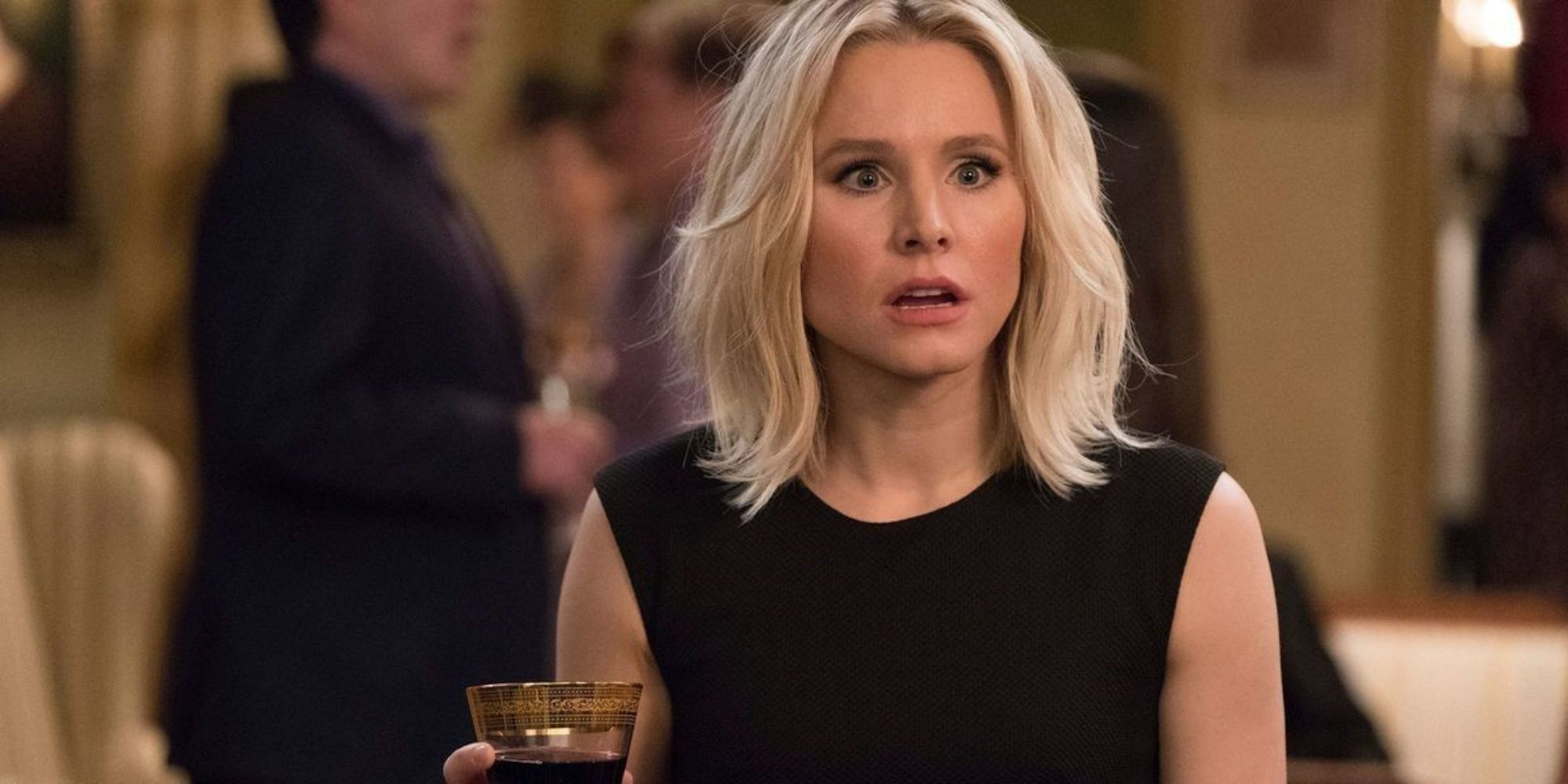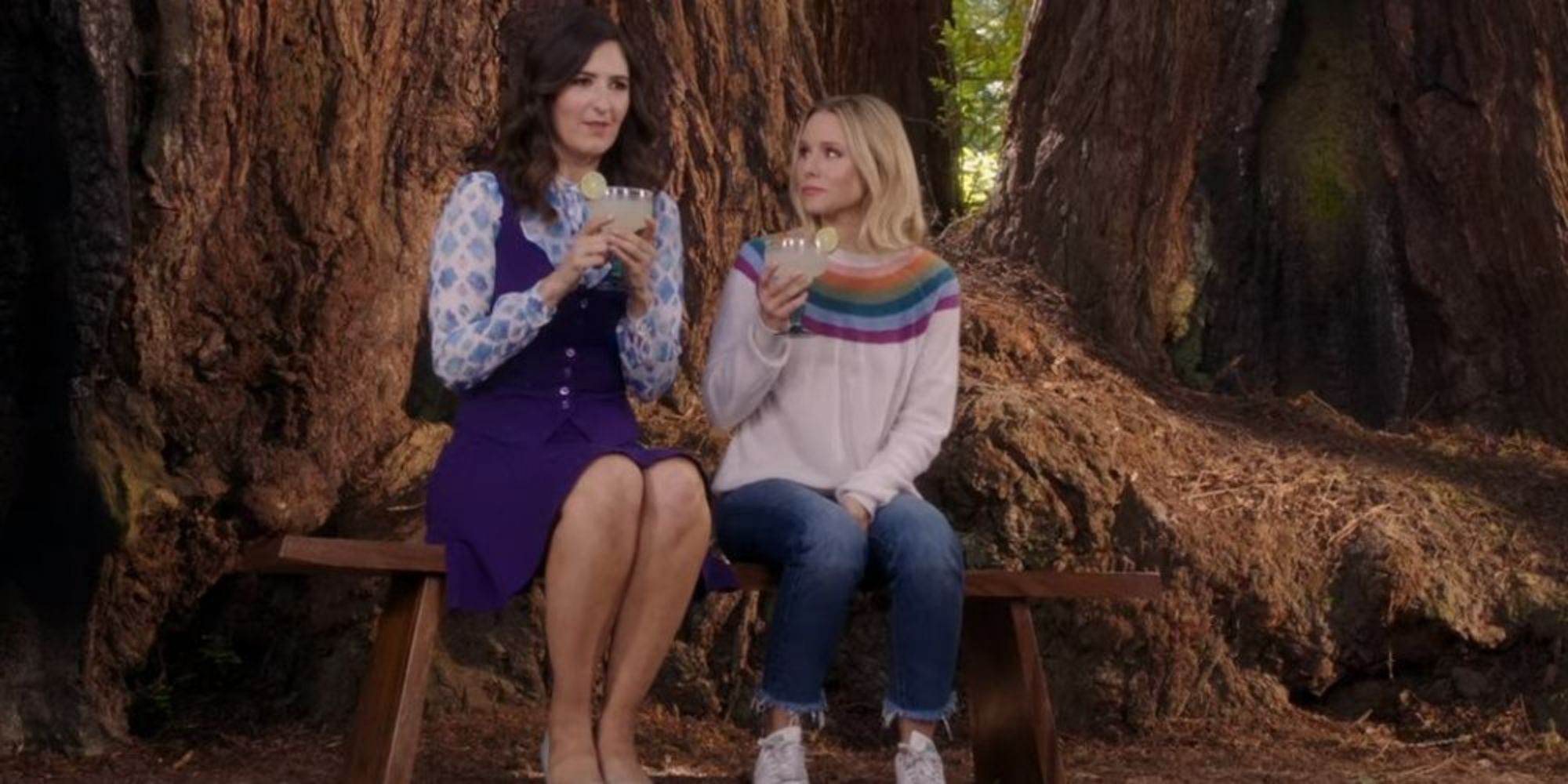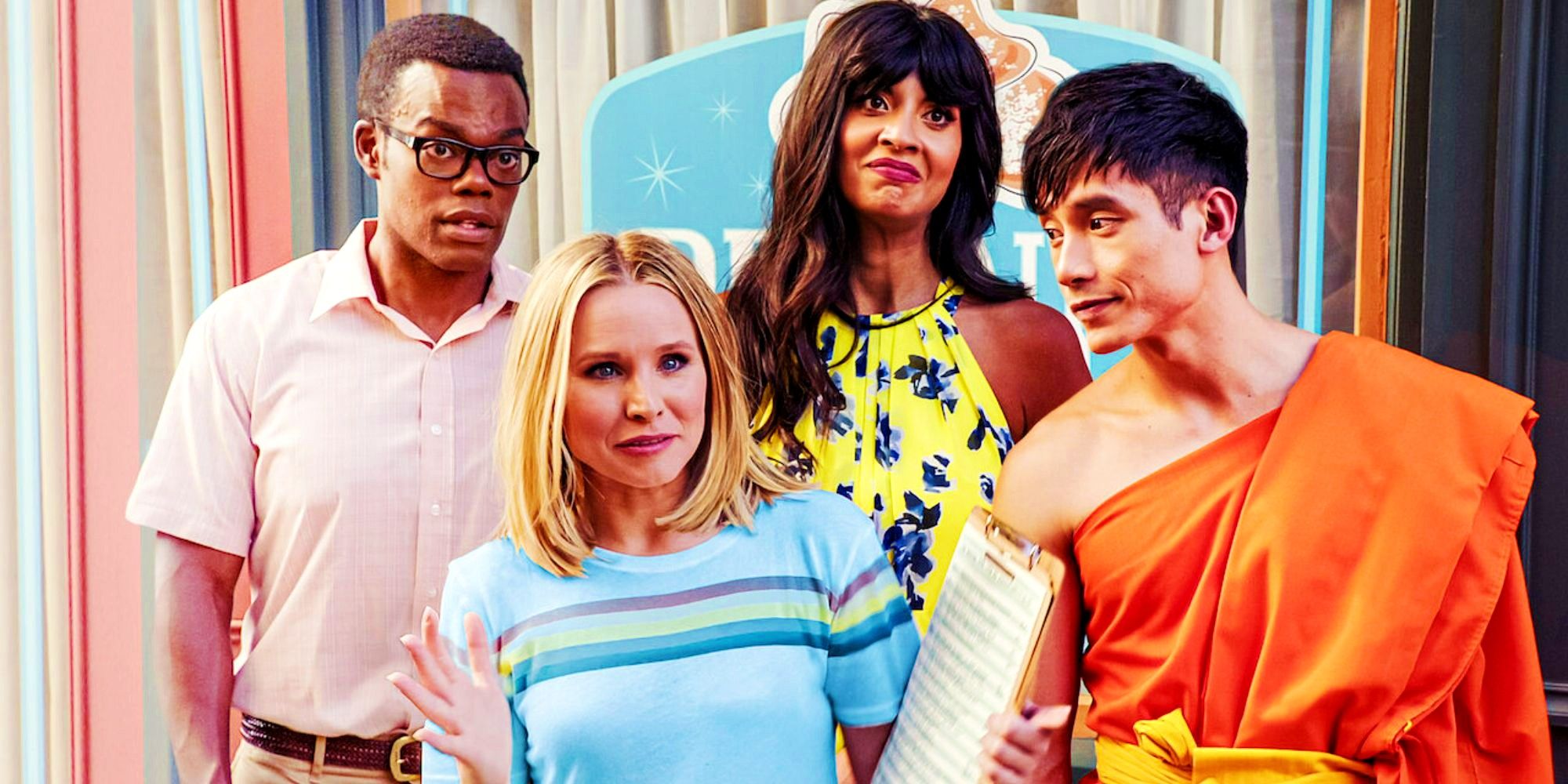The Good Place is filled to the brim with continuity errors and plot holes, but this does nothing to damage its overall themes. The series is an outrageous comedy that pokes fun at human civilization and the concepts of philosophy. However, through its complex plot, it often seems to forget its own rules and contradicts itself around every corner. Typically, this would lead critics to tear a show apart, but in the case of The Good Place, the continuity errors only enhance the show's overall point.
When Eleanor first meets Michael in The Good Place, she thinks that he is an angel and that she is at the center of a colossal mistake. However, as time passes, it's revealed that she and the three other humans are actually in the Bad Place and that Michael is a demon who has been "forking" with them from the beginning. Of course, things only get more complicated between this revelation and the series' ending in The Good Place season 4. Still, the show's themes remain steadfast—humanity is ridiculous, and ethics is complicated. It's this central conceit that makes The Good Place's confusing continuity essentially moot.
The Good Place’s Many Plot Holes Don’t Damage The Show’s Overall Theme
After The Good Place season 1, the plot and characters became rather fluid. Michael, who had only pretended to love human things while playing the part of Good Place architect, was revealed to be entirely disgusted by humans and their useless trinkets (but loved them all again later). Chidi's English is at first shown to be a Good Place filter (he was speaking French, his native language). But, when the group was brought back to life, Chidi spoke perfect English. This is only the tip of the iceberg regarding The Good Place plot holes—but it doesn't matter.
The Good Place's themes explored theology and mixed several commonly observed afterlife ideas. By jamming these drastically different concepts together, it revealed the faults in the way that humanity often perceives morality. Chidi and Tahani might have been considered good people worthy of heaven by some ethical standards, while Eleanor and Jason would not. However, the show revealed that they were all in the same boat and demonstrated how they could all improve given the right social circumstances – irrespective of various continuity issues.
The Good Place Uses Its Continuity Errors To Poke Fun At Society’s Faults
The Good Place not only leaves continuity errors around every corner but will frequently use them to break the fourth wall. Concepts like Jeremy Bearimy were never intended to make sense. Michael's ridiculous way of explaining it (and the result it had on Chidi) only aided in including the audience in on the joke that philosophical concepts are often overly complicated. Jason Mendoza's intelligence may have varied from episode to episode, but this is because he was often a device used to poke fun at the perspective of certain social classes.
This is especially true for Michael, whose love for human objects was inconsistent when he was pretending to be an angel, revealed to be a demon, and successfully went through ethics training. It may not have made sense in the broader scheme, but this quality in his character allowed him to poke fun at the ridiculous things humans do—from smashing their "food holes" together to engaging in war. The Good Place used caricatures and inconsistent comedy as a social commentary for humanity's own inconsistencies.
Why The Good Place Shouldn’t Be Taken Too Literally
It's always fun to analyze the plot of a TV series and find all the ways that the writers messed up, and at first glance, The Good Place seems like the perfect target. Of course, there are likely several inconsistencies that the series never intended, and it is by no means entirely exempt. However, the plot holes in Eleanor's story can't be held against the show. The bizarre afterlife setting with virtually no concrete rules makes The Good Place unique because it is too conceptual to be taken seriously.
The Good Place series never pretended to be cohesive. There may be entire conversations between Michael and the disguised demons that happened when no humans were around and only served to trick the audience, but this only adds to the overall ludicrousness of the series. Ultimately, The Good Place's plot is conceptual, not literal. Its themes are meant to bring up important ethical and philosophical questions in the most comical way possible—plot holes and all.




